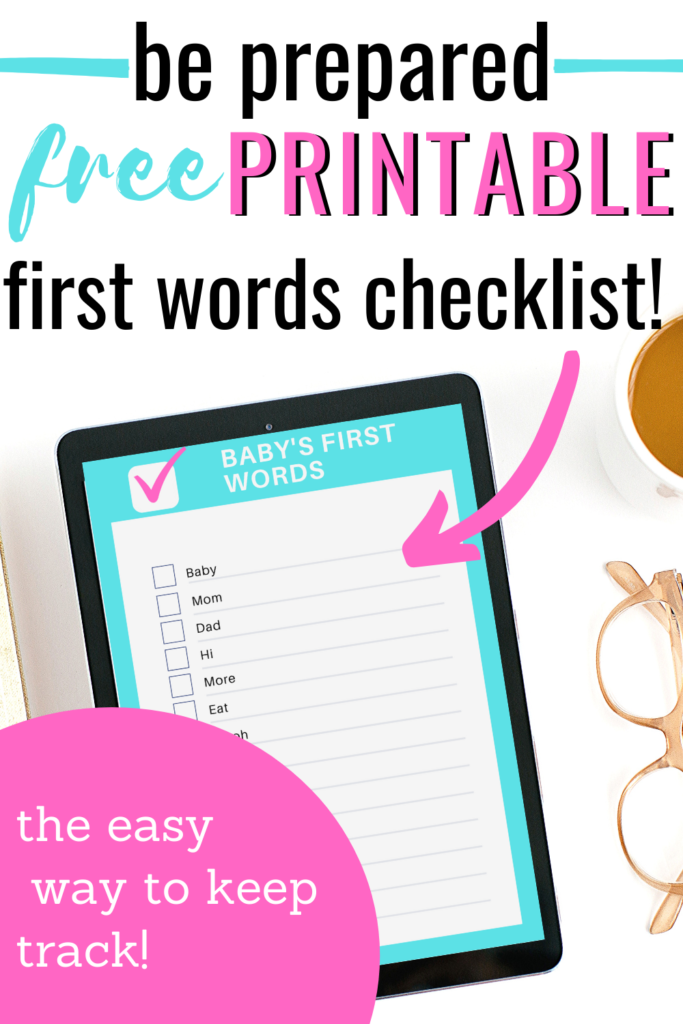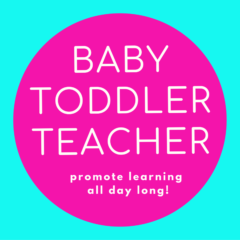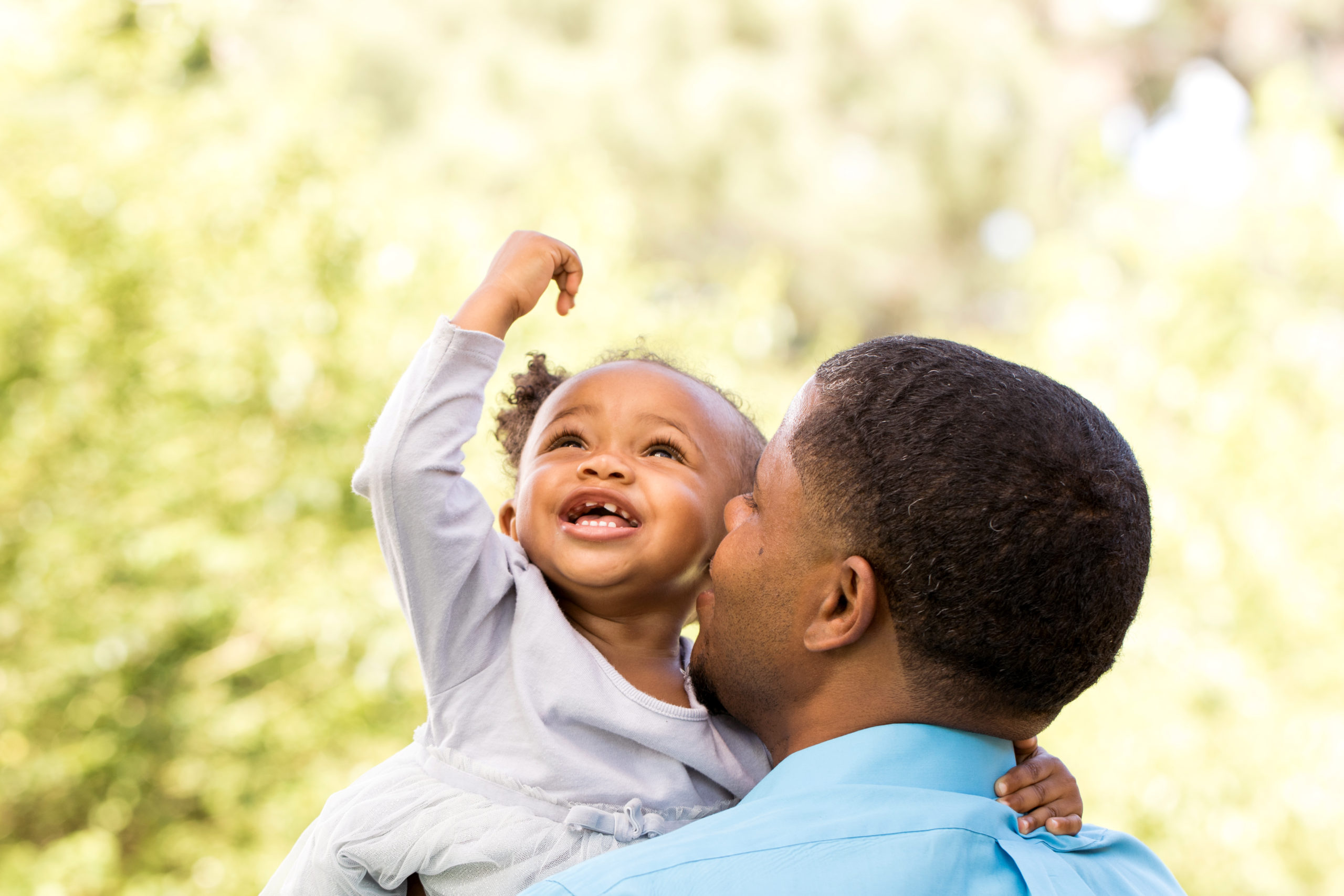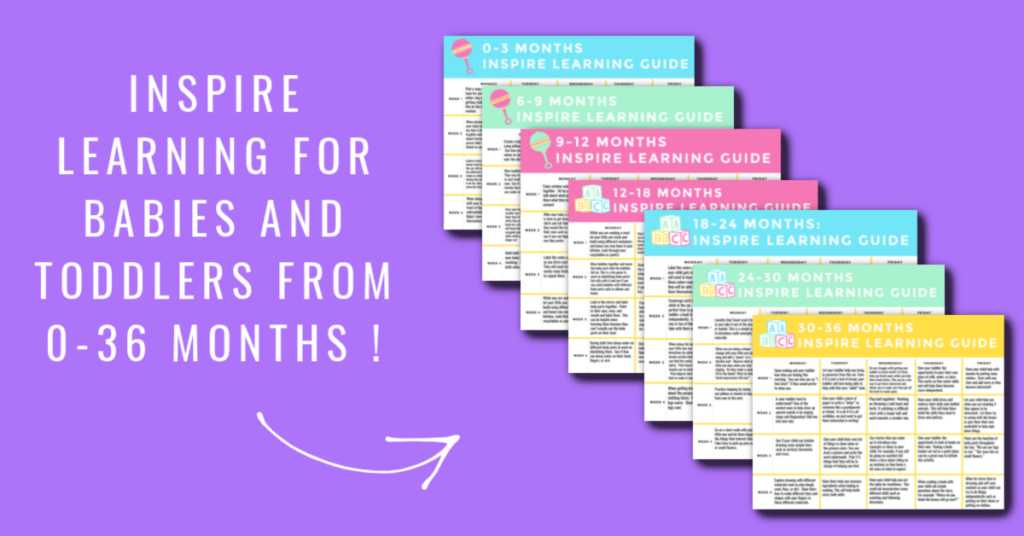One of the most exciting milestones your baby will hit is saying their first word!
Learn all about how to teach your baby to talk and make sure to grab the printable checklist I have made to help you keep track of what your child is saying within this post!
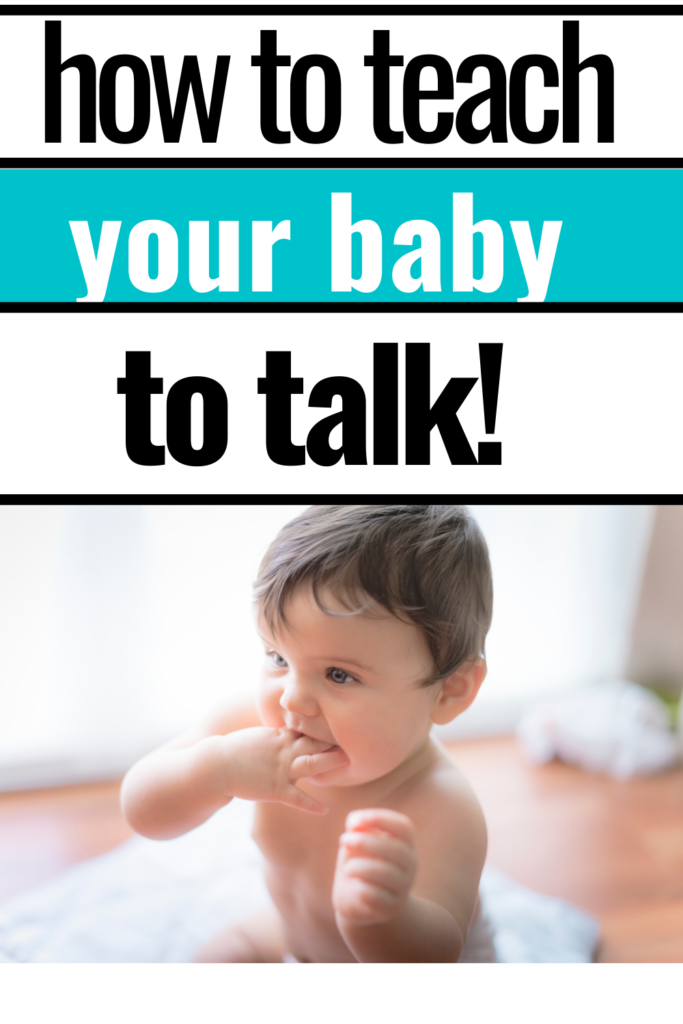
(This post contains affiliate links. To read our full disclosure policy click here.)
How to Teach Baby to Talk
There are a few different stages when we look at how babies learn language.
The first skills needed to talk is to learn how to watch, listen, and imitate.
When you have a brand new baby you can start teaching your baby to talk by just simply just talking to them.
Babies need to hear words many times in order to learn the sounds and repeat them.
Narrating what you do throughout the day or talking to them during play time are great ways to encourage language development from the very beginning.
Singing is also a great way to expose young babies to new words and sounds.
The repetitive nature of singing also helps little ones learn these words and sounds quickly.
Reading to your child not only develops cognitive skills but it also encourages the skills you need to talk.
Your infant will hear many words while you read to them.
Does your baby want you you to read the same book over and over again?
This is good news because it helps them learn through repetition.
Crying is Your Baby’s First Way to Communicate
No one enjoys hearing a baby cry but it is such an essential skill because it is the first way your baby is able to communicate.
Is your baby hungry?
Tired?
Need a diaper change?
A cry indicates to parents that the baby needs something and is a very effective way for the baby to communicate.
When do babies start cooing?
Your baby will start cooing sometime after they are at least 2 months old.
Cooing sounds a bit different then babbling and is made up of mostly vowel sounds.
Cooing is a way for your baby to start playing with language a bit by making different sounds and seeing how their caregiver responds.
Have fun with this stage by acknowledging your baby when they coo so that they know you are listening.
You can even try to imitate their sounds to play a little game.
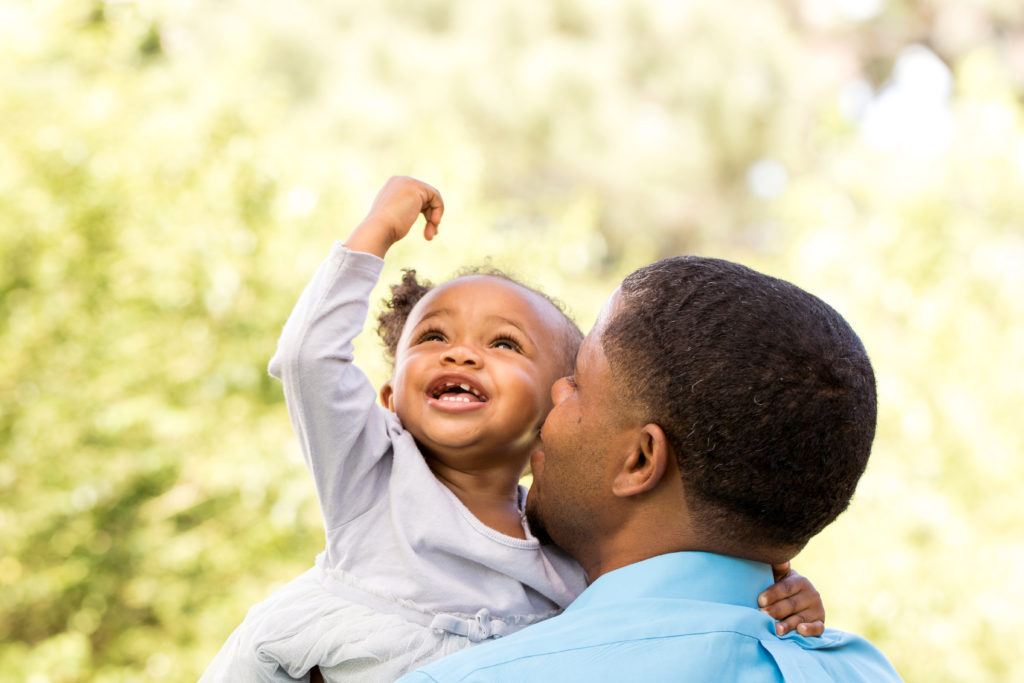
Baby Non-Verbal Communication
Being aware of your baby’s non-verbal communication is important because they use that frequently to get messages to you before they can talk.
What does non-verbal communication look like in a baby?
It can be facial expressions, body movement, pointing, or gestures.
Your baby’s face gives you tons of clues on how they are feeling and what they may be needing.
You can tell they are full by that silly content smile they get after a feeding.
As your infant gains control of their arms and hands they will start to use pointing as an indication for what they want or need.
You may also teach them a few baby signs in order to give them a way to communicate before their actual words come in.
Baby first Words List: Which words should you teach first?
When you think about what words to teach your baby first you will want to think about words that will be powerful and have meaning to them.
Many times a baby’s first word is either “mom” or “dad” or some variation of that.
One of the reasons this is such a popular choice for a baby’s first word is because being able to say their caregiver’s name is a crucial skill.
This is another way to get your attention that isn’t crying!
Here are a few more examples of words you may want to target as your baby starts to talk:
- More
- All Done
- Eat
- Drink
- Hi
- Bye
- Yes
- No
- Up
You can grab a printable baby’s first-word list HERE that you can hang on your fridge for ideas and for you to track progress.
Keeping Your Own Baby Talk Words List
One of my favorite strategies for parents that are working on growing their little one’s vocabulary is to keep a list of what they are saying.
This is a great way for you to monitor and keep track of your child’s progress.
It can also give you ideas on what words to focus on as your little one gets older.
For example, you will notice that many of the words your child starts out saying are nouns.
As your they get older you will want to make sure that they learn a variety of different word types including descriptive and action words as well.
You can download my printable baby word list here and check off the words as they gain them.
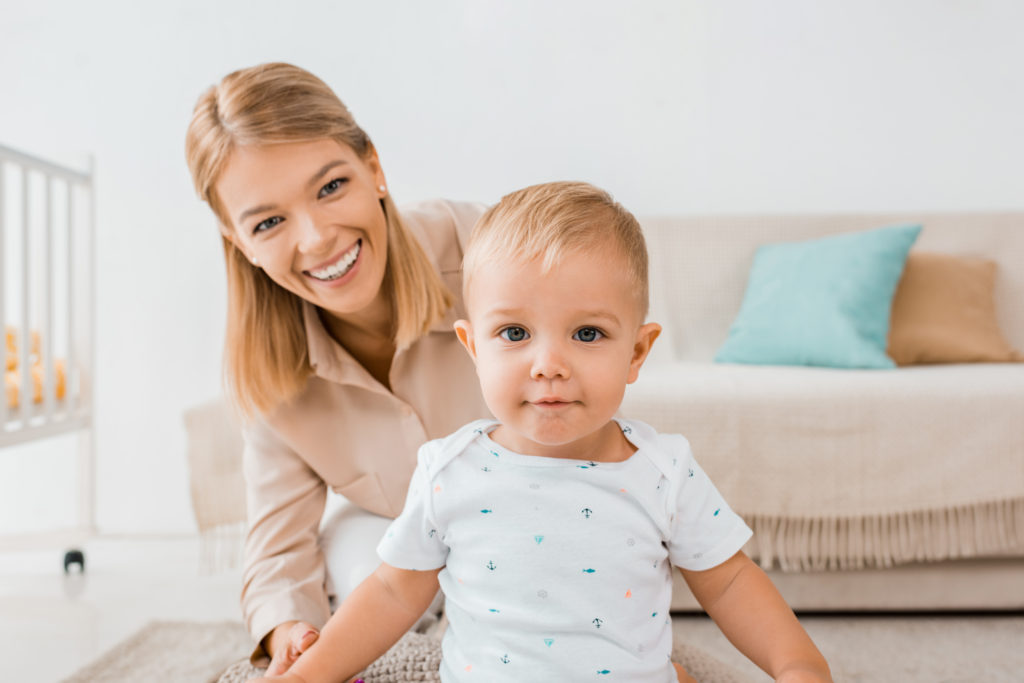
When do babies speak in sentences?
Your little one will start combining words into two word phrases or sentences usually sometime between 20-24 months.
You can encourage this skill by simply adding on to what your child says.
For example, if they say “ball”, you can say “blue ball.”
This allows them to hear a new word as well as how to combine two together.
Frequently Asked Questions
I have seen it go both ways! Some will say “mama” first while others say “dada”. Your baby may also call both parents the same name for a while as well because they find out it is a very effective word.
Between 15-18 months you expect your child to have somewhere between 15-20 words that they use expressively. This includes signs and word approximations as well.
“Mom” or “dad” tend to be very common first words for babies to speak.
Words that your baby are most likely to imitate are the words that they here the most frequently.
Related Posts You Will Enjoy
When do babies start clapping?
Simple Steps to Teaching a Baby to Roll
